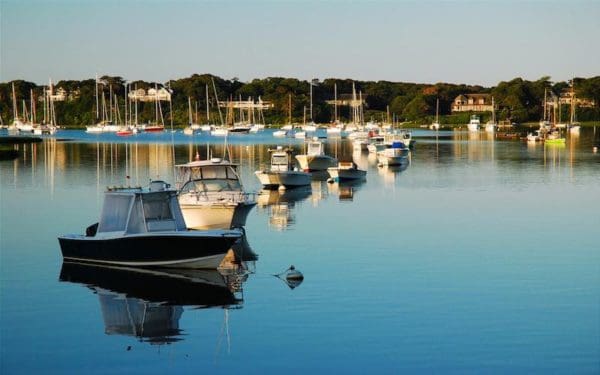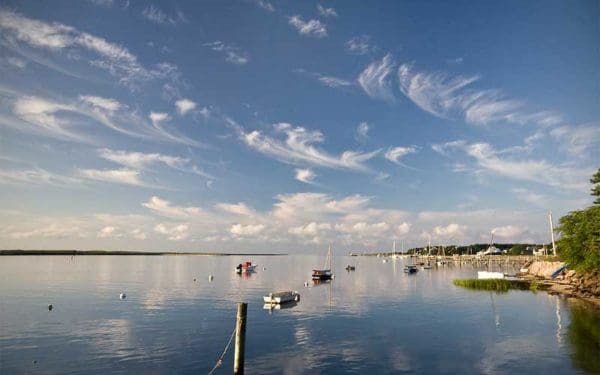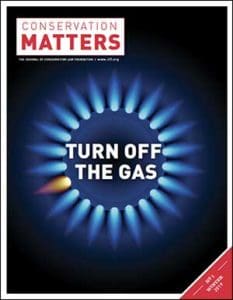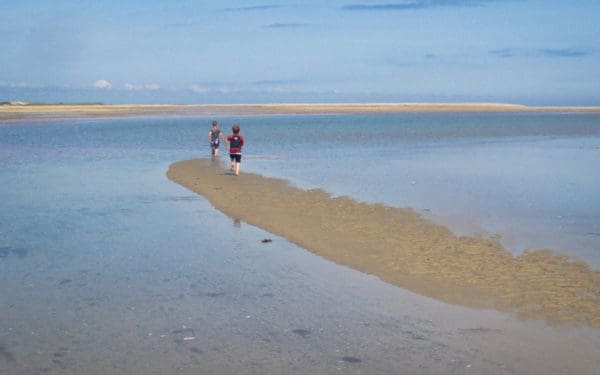May 28, 2020
“Nitrogen pollution is wreaking havoc on the Cape’s bays, beaches, and economy,” said Christopher Kilian, Vice President of Strategic Litigation at CLF. “These waters belong to all of us, and large sources must do their part to protect these precious resources. This proposed settlement will lead to a cleaner Wychmere Harbor and we’re happy to be working together with the resort to reach that goal.”
Apr 23, 2020
“With the nation’s landmark clean water protections in peril, the Supreme Court made the right call today,” said Heather Govern, Director of CLF’s Clean Air and Water program. “The Trump Administration attempted to open a serious loophole in the Clean Water Act and was roundly rejected. This decision will prevent pollution and help repair the rivers, streams, and marine waters throughout New England that so many of us depend on.”
Dec 20, 2019
“Pollution is killing the Cape bays and beaches that resorts like Wychmere depend on,” said Chris Kilian, Vice President of Strategic Litigation at CLF. “Instead of wasting everyone’s time and expense seeking to justify continued pollution, the resort should clean up the mess it has created in Wychmere Harbor. CLF will continue this fight against the destruction of Cape waters that belong to all of us.”
Nov 07, 2019
Andrew Gottlieb, Executive Director of the Association to Preserve Cape Cod, discusses the organization’s recent report, which showed that many of the Cape’s coastal waterways fail to meet basic water quality standards.
Oct 09, 2019
Preserving the Cape’s beautiful waters is a responsibility that rests on all of us, and we will only be successful if every town and resort does their share. Every resident and visitor deserves the opportunity to enjoy the area’s bays, beaches and ponds for years to come. To preserve that opportunity, individual polluters as well as town officials must commit to stopping this dangerous pollution. We must protect our waters (and economy) for future generations.
Mar 02, 2019
Nitrogen pollution is driving Cape Cod’s waters to the brink of ecological disaster.
Feb 27, 2019
From climate to transit, from your tap water to the ocean, and from Maine to Connecticut, CLF and New England are poised to make progress where governments falter. Turn Off the Gas Winter Snow and Ice Bring Out Big Gas’s Fearmongers. Why is the Region’s Electric Grid Operator among Them? Progress Report Clear Skies Ahead… Continue reading Conservation Matters Winter 2019
Jan 13, 2019
The Boston-based environmental law firm contends this unimpeded flow of nutrients into these water bodies must be regulated under the Clean Water Act, which imposes much higher standards of pollution control than the state permit. Nutrients such as nitrogen spur rapid algal growth, destroying pond and bay ecosytems, rendering them unfit for swimming, fishing or marine life.
Jan 10, 2019
“Nitrogen pollution is destroying Cape Cod’s bays and beaches and damaging the Cape’s economy,” said Chris Kilian, Vice President of Strategic Litigation at CLF. “Illegal sewage discharge from Wychmere Beach Club is wreaking havoc on water quality.”
Dec 10, 2018
A battle underway in Barnstable could have serious repercussions for the health of Cape Cod’s waters.





